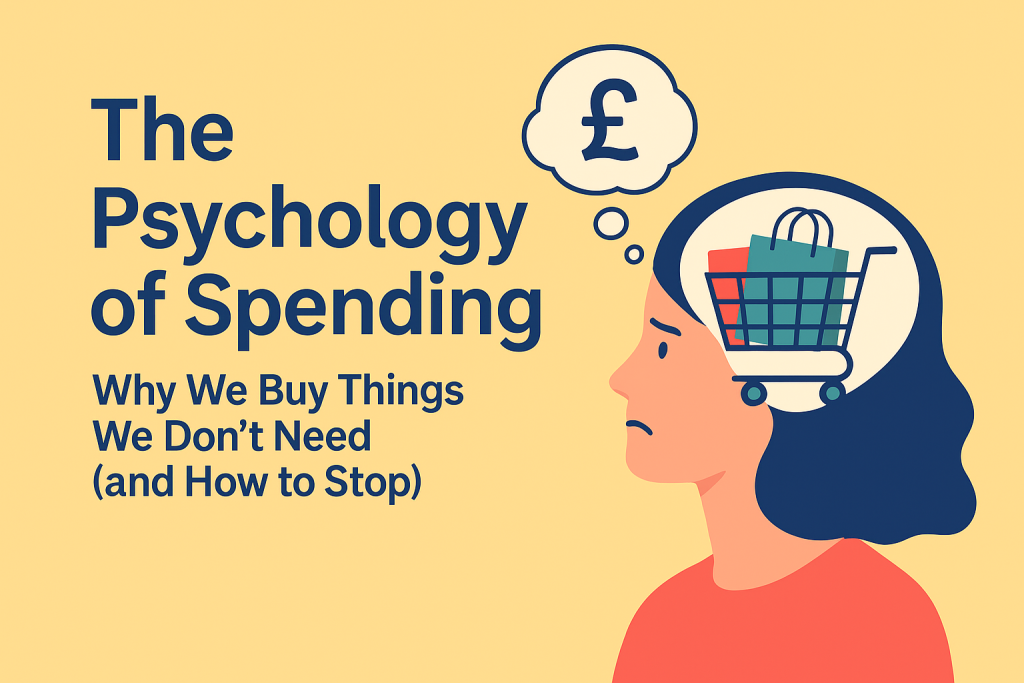The Psychology of Spending: Why We Buy Things We Don’t Need (and How to Stop)
We’ve all done it — bought something we didn’t really need, justified it as a “treat”, and felt a small sting of regret later. Whether it’s a sale that’s “too good to miss” or the thrill of unboxing something new, impulse spending is deeply human.
But why do we do it? And more importantly, how can we stop?
This post explores the psychology of spending — what drives our buying habits, how retailers take advantage of them, and how to take back control of your wallet and mindset.
🧩 1. The Emotional Side of Spending
Spending isn’t just about money — it’s about emotion.
We buy things to feel better, to reward ourselves, or to fill a void. In many cases, the purchase is less about the item itself and more about what it represents: comfort, achievement, status, or escape.
Common emotional triggers include:
-
Stress or anxiety – “I deserve something nice.”
-
Boredom – shopping for entertainment.
-
Low mood – buying to feel a temporary sense of control.
-
Social pressure – wanting to keep up with friends or influencers.
The problem? These quick bursts of dopamine fade fast — but the financial impact lingers.
